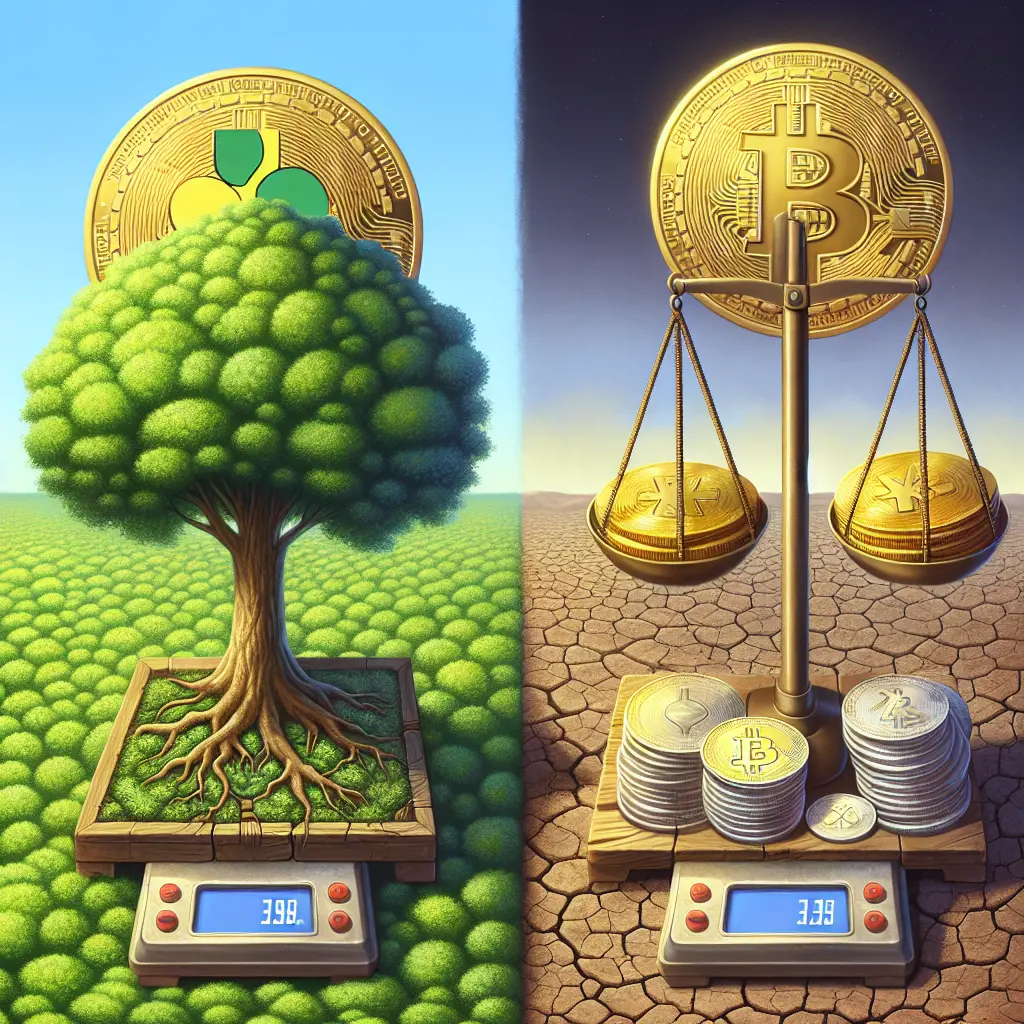As the world becomes more environmentally conscious, the spotlight is increasingly falling on the sustainability of technology, including cryptocurrencies. Among them, XRP stands out for its approach to reducing environmental impact, differing significantly from other major players like Bitcoin and Ethereum. Let's delve into the environmental impact of XRP compared to other cryptocurrencies, exploring its energy efficiency, sustainability initiatives, and the broader implications of blockchain technology on the environment.
Cryptocurrencies and their underlying technology, blockchain, have been revolutionary in terms of financial independence and privacy. However, this innovation comes with a cost to the environment. The cryptocurrency carbon footprint is substantial, primarily due to the energy-intensive process known as mining, used by currencies like Bitcoin and Ethereum. This process requires vast amounts of electricity, often sourced from fossil fuels, contributing significantly to greenhouse gas emissions.
XRP operates differently from Bitcoin and many other cryptocurrencies. While Bitcoin uses a proof-of-work (PoW) mechanism that requires extensive computational power (and thus energy) to mine new coins and validate transactions, XRP uses a consensus protocol that doesn't rely on mining. This fundamental difference makes XRP more energy-efficient than Bitcoin. Reports suggest that a single Bitcoin transaction could power the typical U.S. household for over 24 days, whereas an XRP transaction consumes as much energy as powering a lightbulb for mere seconds source.
Ripple, the company behind XRP, has been proactive in addressing environmental concerns. They have committed to becoming carbon net-zero by 2030 and have launched initiatives to decarbonize public blockchains. This commitment positions XRP as an eco-friendly crypto option for investors concerned about the environmental impact of their investment choices.
The concept of green cryptocurrencies is gaining traction. These low-energy cryptocurrencies are designed to minimize environmental impact through various means, including using proof-of-stake (PoS) mechanisms, which require significantly less energy than PoW systems. Ethereum's recent transition to PoS (Ethereum 2.0) marks a significant step forward in reducing the blockchain environmental effects of one of the largest crypto networks.
Recent News and Developments
In light of recent market developments, it's crucial to keep an eye on how different cryptocurrencies are performing and what that means for investors and the environment:
Market Watch: This week, cryptocurrencies like Bitcoin, Ether, and XRP are under scrutiny source. With Bitcoin holding steady despite tech stock plummets, and XRP volumes surging on South Korean exchanges, investors are keenly watching these trends.
Legal and Regulatory Updates: Ripple recently celebrated a legal victory where a judge significantly reduced the SEC's penalty request in the XRP case by 94%, a decision that could have broader implications for the crypto industry source.
Security Concerns: The FBI has issued warnings about potential security risks in the crypto space following significant market crashes source. These developments underscore the volatile nature of cryptocurrencies and the need for robust security measures.
Ripple's Efforts and Community Engagement
Ripple has been actively engaging with its community and stakeholders. The upcoming XRP Design Challenge deadline serves as a reminder of Ripple's commitment to fostering innovation within its ecosystem. Such initiatives not only promote creativity but also encourage the development of new solutions that could further enhance XRP’s sustainability and efficiency.
As we navigate through the complexities of cryptocurrency investments and their environmental implications, XRP presents a compelling case. Its low energy consumption compared to Bitcoin and Ethereum, combined with Ripple's proactive sustainability measures, sets it apart as a leader in the eco-friendly crypto space. For investors looking to minimize their environmental footprint while exploring cryptocurrency opportunities, XRP offers a promising avenue.
In a world where every watt counts towards combating climate change, choosing investments that align with our values is more important than ever. As we continue to monitor the evolving landscape of cryptocurrencies, let's remain informed and thoughtful about how our choices impact the planet.









Leave a Comment